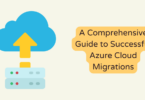
How Managed Security Services Benefits the Healthcare Industry
The healthcare industry is evolving rapidly, leveraging advanced technologies to improve patient care, streamline operations, and store sensitive patient data. However, this digital transformation also brings along unprecedented cybersecurity challenges. Healthcare organizations face increasing threats from hackers, data breaches, and ransomware attacks that can compromise patient information and disrupt critical operations. Managed Security Services experts protect the healthcare industries from potential threats.
In this blog post, we will explore the role of managed security services in safeguarding the healthcare industry and discuss the significant benefits they provide.
Understanding Managed Security Services For the Healthcare Industry
To understand the importance of managed security services in the healthcare sector, it is essential to recognize the unique cybersecurity landscape healthcare organizations face. The healthcare industry holds vast amounts of sensitive data, including patient records, financial information, and intellectual property. Cybercriminals exploit vulnerabilities in healthcare systems to gain unauthorized access, steal data, or disrupt operations. The consequences of a successful attack can be devastating, resulting in compromised patient care, legal liabilities, reputational damage, and financial loss.
Managed security services (MSS) provide healthcare organizations with a proactive and comprehensive approach to cybersecurity. MSS providers offer a range of services, including threat monitoring, vulnerability assessments, incident response, and security infrastructure management. These services are designed to protect healthcare systems, detect real-time threats, and respond swiftly to mitigate potential risks. By outsourcing their security needs to experienced MSS providers, healthcare organizations can focus on their core mission of delivering quality care while knowing that their systems and data are in safe hands.
Benefits of Healthcare Managed Security Services
Identifying Specific Risks
Managed security services are essential in helping healthcare organizations identify and manage specific risks. These services encompass various activities, such as risk assessments, vulnerability scans, and penetration testing. By identifying potential threats and vulnerabilities, healthcare organizations can take proactive steps to mitigate them before they become a problem. For example, suppose a vulnerability scan uncovers a weakness in the organization’s network security. In that case, the managed security service provider can help implement measures to address the issue and prevent a potential data breach. Overall, managed security services are crucial for maintaining the safety and security of healthcare organizations’ sensitive information and systems.
Protect Important Data
One of the biggest concerns for any business is safeguarding valuable data. This is particularly important for healthcare organizations, which handle sensitive patient information on a daily basis. One way to protect your data is by working with a managed security services provider (MSSP). An MSSP can help you understand the risks associated with your data and make informed decisions about how to mitigate them. They can also provide ongoing monitoring and support to secure your systems. By partnering with an MSSP, healthcare organizations can focus on delivering high-quality care to their patients, knowing that their valuable data is in good hands. Conducting Cybersecurity Audits regularly can also protect the healthcare industry from data breaches.
Compliance with Regulatory Standards
The healthcare industry is subject to stringent regulatory requirements such as the Health Insurance Portability and Accountability Act (HIPAA) and the General Data Protection Regulation (GDPR). Compliance with these standards is crucial to protecting patient privacy and avoiding costly penalties. Managed security service providers have in-depth knowledge of these regulations and can assist healthcare organizations in implementing the necessary security controls and processes. By leveraging MSS expertise, healthcare providers can navigate complex compliance landscapes more effectively and reduce non-compliance risk.
Enhanced Threat Detection and Prevention
Managed security services employ advanced technologies such as artificial intelligence, machine learning, and behavioral analytics to effectively detect and prevent cyber threats. Healthcare organizations can benefit from continuous monitoring of their networks, endpoints, and cloud environments, enabling the early detection of suspicious activities. Managed security services providers can quickly identify and respond to potential threats, minimizing the risk of data breaches and unauthorized access. Additionally, MSS providers can offer robust firewall protection, intrusion detection and prevention systems, and antivirus solutions, ensuring a robust defense against evolving threats.
Proactive Incident Response and Recovery
In the event of a cyber-attack or data breach, a swift and efficient response is critical to minimize the damage. Managed security service providers offer proactive incident response services, including round-the-clock monitoring, threat hunting, and rapid incident containment. They can also help with post-incident recovery, including data restoration, system remediation, and forensic analysis. By partnering with MSS providers, healthcare organizations can enhance their incident response capabilities and reduce the time it takes to recover from security incidents, minimizing the impact on patient care.
Improved ROI
Partnering with a healthcare-experienced managed security services provider can be a smart move for organizations looking to improve their ROI. By implementing savvy security solutions, these providers can help protect against data breaches and cyber attacks, which can have costly consequences for healthcare organizations. In addition to preventing financial losses, a strong security posture can also enhance an organization’s reputation and build trust with patients and stakeholders. With the right managed security services provider, healthcare organizations can see significant improvements in their ROI through increased efficiency, reduced downtime, and better overall security.
Conclusion
In an increasingly digitized healthcare industry, managed security services play a vital role in safeguarding sensitive patient data, protecting against cyber threats, and ensuring compliance with regulatory standards. The benefits of partnering with a reputable MSS provider include enhanced threat detection and prevention, comprehensive compliance support, proactive incident response, and peace of mind for healthcare organizations. By leveraging the expertise and advanced technologies of managed security service providers, healthcare providers can focus on their core mission of delivering quality care while maintaining the privacy and security of patient information in an ever-evolving threat landscape.






